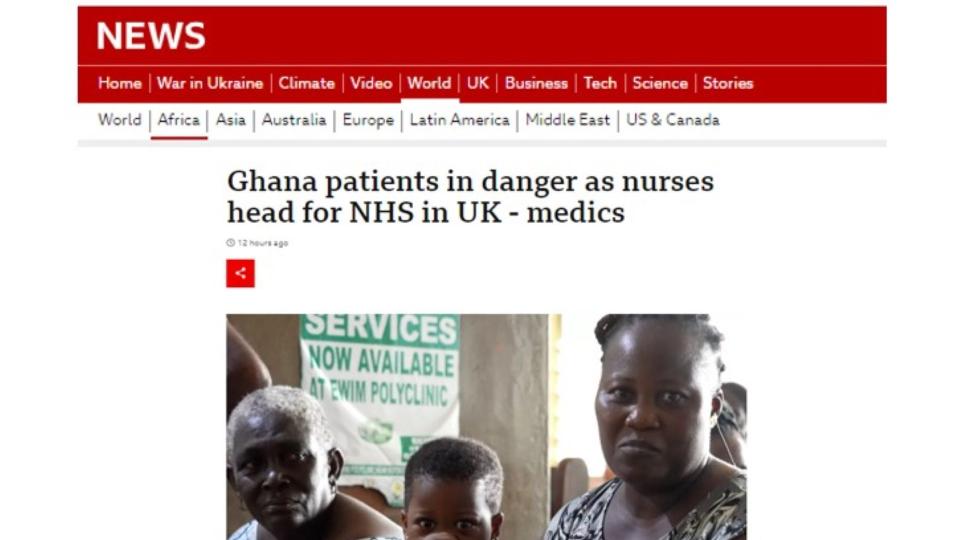BBC highlights ICN’s concerns over international recruitment from ‘Red List’ countries

The International Council of Nurses’ position on the international recruitment of nurses has made headline news across the BBC, its flagship Radio 4 Programme ‘Today’ and BBC World Service.
In a lead story featured across the BBC network underlined ICN’s deep concerns over the challenges created by international nurse recruitment from poorer to wealthier countries.
A team of BBC journalists found that more than 1,200 nurses had left Ghana to work in the United Kingdom in 2022, despite the fact that ‘active’ recruitment from Ghana and 54 other countries is banned under World Health Organization’s (WHO) rules.
The BBC spoke to the President of the Ghana Registered Nurses and Midwives Association Perpetual Ofori-Ampofo, who said the loss of senior and experienced specialist nurses was harming the health care system in Ghana. She said while nurses are entitled to travel abroad to work, the Ghanaian government should do more to persuade them to stay in Ghana.
Asked for comment, ICN Chief Executive Officer Howard Catton told the BBC that migration from countries such as Ghana is in danger of getting out of control.
"We have intense recruitment taking place, mainly driven by six or seven high-income countries, from countries which are some of the most vulnerable, which can ill-afford to lose their nurses."
Mr Catton warned against wealthier governments coming up with ad hoc deals which did not properly recompensate poorer countries from whom they were recruiting. He said these richer countries must avoid what he described as “trying to create a veneer of ethical respectability rather than a proper reflection of the true costs to the countries which are losing their nurses".
ICN’s position is that all countries should work towards being self-sufficient in their supply of registered nurses. In the meantime, more generous contributions are needed from destination countries to compensate donor countries for their loss of nurse numbers and expertise and make it less likely that nurses will want to leave their home countries. All countries must invest in their nursing workforce and aim for self sufficiency in the education of their nurses.
Mr Catton said it was significant that ICN was featured as the leading voice in a global story of such importance, and further evidence of ICN’s growing authority, reputation, visibility and influence.
Download the communique here